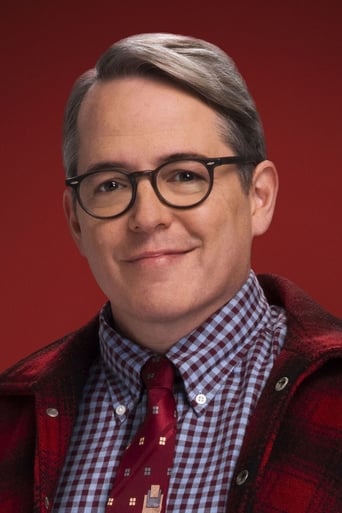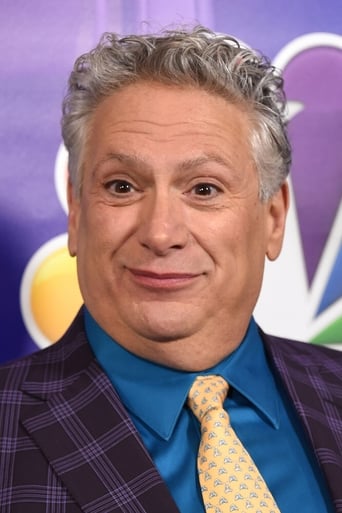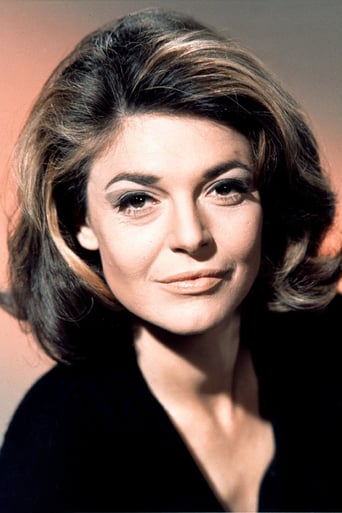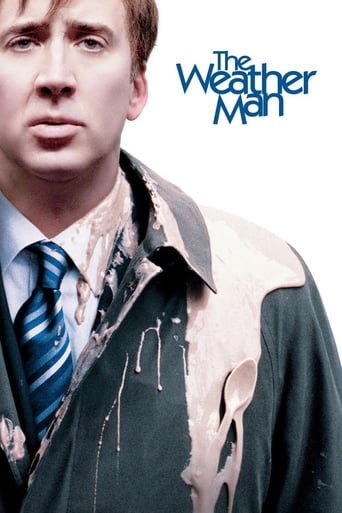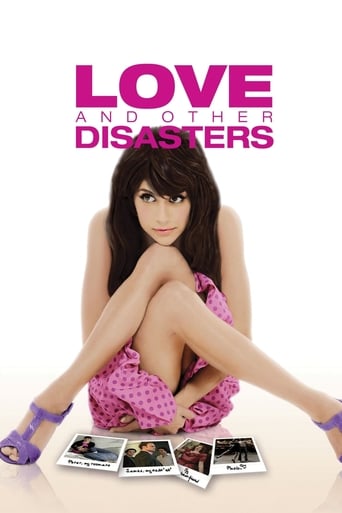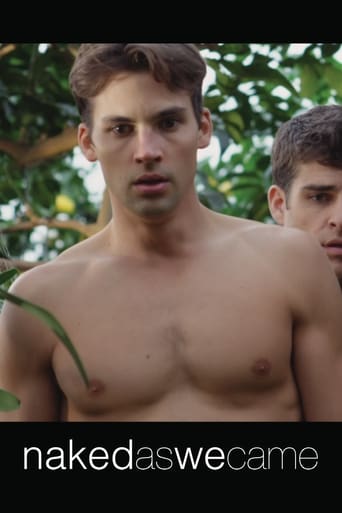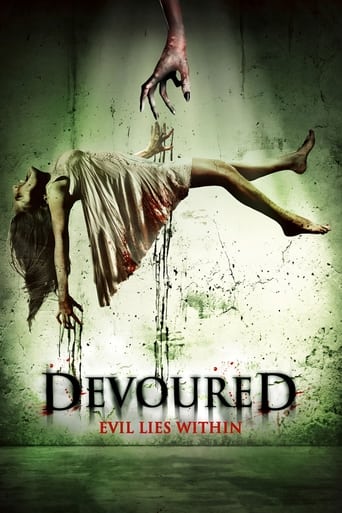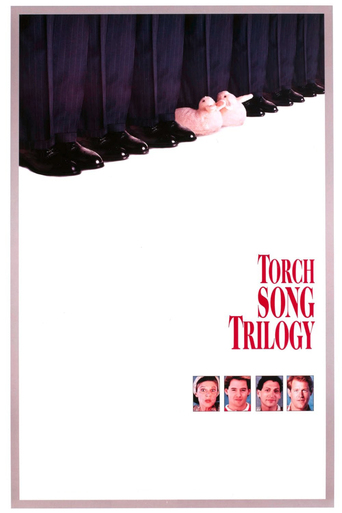
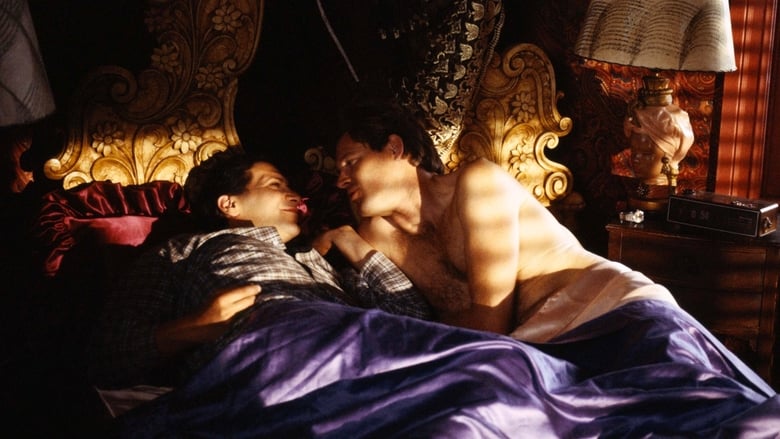
Torch Song Trilogy (1988)
A very personal story that is both funny and poignant, TORCH SONG TRILOGY chronicles a New Yorker's search for love, respect and tradition in a world that seems not especially made for him.
Watch Trailer
Cast


Similar titles
Reviews
In the late 80s, Harvey Fierstein had his play, Torch Song Trilogy, adapted into a movie from New Line Cinema, which was generally well received by critics and audiences for its themes of homosexuality getting around in the 70s before it was fully accepted nationwide. While I have not seen the original play itself, I think the move to cinema works in favor of Fierstein's creation, mainly for how it brings a rather intense feel to the problems that homosexuals went through in New York prior to the AIDS epidemic, and I think they did quite a good job bringing it to the big screen.As this is a trilogy by title, the whole film centers around the life of a gay Jewish man named Arnold Beckoff (Fierstein) who refuses to conform to anyone else's ideas, even his uptight mother (Anne Bancroft). Considering that Arnold Beckoff found out he was gay at age thirteen, he chose to be a pretty successful drag entertainer to make amends with life. Along with the soon to be mentioned side archs, what's really interesting about the film is the contrast between Arnold and his relatives. Based on her generation, Ma Beckoff just thinks being gay is a phase, but by the time Arnold is in his mid thirties, it only disproves her point, causing some meaty drama between the two that really sells the feature. As the film showcases Arnold's career as a drag queen, we see that his love life is pretty tumultuous to say the least. The one true love of his life is a bisexual named Ed (Brian Kerwin) who doesn't really see himself as being homosexual. It's interesting when Arnold calls him out by saying he'd like to meet at least one bisexual who is open with his gaylife, but would rather keep his women a secret. This creates much chemistry and bickering between Arnold and Ed, as Arnold's love issues conflict with Ed failing to contain any deep values, making Ed more than just an unsophisticated "hayseed" who Arnold just cannot get behind.Later, after a disastrous performance, a young male model named Alan (Matthew Broderick) ends up falling for Arnold, and Broderick sells the same charismatic charm he displayed as Ferris Bueller. It's through their relationship that Arnold feels like he has found the next true love of his life, and one particular scene where they spend the night at Ed and Laurel's house (his former fiance), they fully persist their lovelife after jokingly testing it to the other two. It's only upon Alan's tragic death during a massive gang fight from a pack of homophobic street thugs that the film really brings an emotional gut-punch to the audience, let alone Arnold, and it's sad to say that events like these are not too uncommon today.The final arch in the film details Ma Beckoff visiting Arnold who is in shock when she discovers that he has planned legal adoption of a gay teenage son, David (Eddie Castrodad), leading to many arguments where Arnold demands that she accept him for who he is, going as far to say that she has no place in his life if she can't do so otherwise. I'm sure anyone who is part of the LGBT community can relate wholeheartedly, as such debates between a mother and offspring can resonate with people who suffer emotionally due to their place in society. While they do somewhat make up with one another, especially with Arnold's successful new career with his own stage revue, it makes him a much more complete man and we see just how coming to terms with one's parents never really works without drama.On a notable note, although far and few in between, the drag shows are very well choreographed, funny and even colorful, as director Paul Bogart and cinematographer Mikael Salomon fully display the raw energy and charisma found in the one stage performances. The makeup department also deserves much praise, as they really get the aesthetic and feel of drag queen material down and I'm sure they had a lot of fun putting it on the performers. In addition, Fierstein did co-write the song Dames, and it perfectly sets up the comedic tone that is displayed throughout the drag shows, giving some much needed humor in a very realistic film. All in all, Torch Song Trilogy transfers quite well from the stage to the screen, which could not have been done without Fierstein or Bogart's involvement. As it is a rather personal nostalgic project arguably based on his own gay male life, it details the general dilemmas of growing up gay at a time when it was yet to be accepted by most people. If you're interested in checking out a film that details the struggles of homosexuality or if you're into anything featuring Fierstein, then this is just the film for you. It's quite admirable how Fierstein has never even tried to undermine his dedication for LGBT rights while displaying his versatile talents to his people and everyone else in general. So, here's to more fun projects with the man who really knows how to connect with the flaws of society and minorities.
A notable film on several levels. First, it was way ahead of America in being a relatively mainstream film that treated gay men as people of depth, value, humor and worth making a film about. (Although there is sad irony in the fact this huge hit play took so long to make it to the screen that AIDS had already totally altered the landscape by the time of its release. That's something the film only notes in the closing credits, and gives it a bit of a 'rose colored glasses' hue). But beyond any politics or social significance this is also a very well acted, funny and moving look at one man, Arnold, (played by the unique and charismatic Harvey Firestein, who wrote the play and screenplay) as he looks for love – both romantic and familial in a sometimes very cold world. If Firestein's performance can occasionally feel theatrical, it's also entirely appropriate for the starting-to-age drag queen performer he plays. What's wonderful is how Firestein always keeps the humanity under Arnold's occasional flamboyance very alive, as does Anne Bancroft as his 'difficult' mother. Later in her career Bancroft could tend towards theatricality on screen as well, but she tones it down just enough to feel real here, and anyway, lets face it, next to a drag queen, who is more innately dramatic than a Jewish mother? (I grew up with one, trust me). Matthew Broderick and Brian Kerwin also do very good work in support, Broderick as a sexy but understated young man totally at ease with his sexuality, and Kerwin as a confused bi- sexual trying to work out his. While never rising to the level of a great film (the direction is very straightforward and bland, there's almost a TV movie look to it, it never completely surpasses it's theatrical origins), it's certainly a good, touching, human, and important one – although to a generation growing up with the reality of gay marriage and deeper integration of gay people into society, some of the historical importance may be lost. But not the essential, timeless embrace of kindness, love, respect and understanding
Sixteen years ago,while an undergraduate in college,I decided to take an acting class for the proverbial,(bleeps)and grins,since my actual major was something else. They had us put on various selections from a limitless range of work,and they usually had us in groups,no big than four(the class was only about thirteen people). Everyone,however,was supposed to do a selected monologue. Previously reluctant to portray a gay man,I was turned on to this show primarily because Matthew Broderick had done it BOTH on stage and screen(as well as the fact that William Hurt won an Oscar playing a flamboyantly gay man and at the time I was hip to the fact that likable everyman Tom Hanks' next big role would be playing a gay man dying of AIDS,actors I also both greatly admired)and figured if Matt Broderick was up to the challenge so was I. For a class. Seen by exactly thirteen other people,my teacher included.So to do my "homework" for the show,besides reading,rehearsing and memorizing Harvey Fierstein's play(brilliant,by the way),I rented this movie,at the time already five years old and comfortably in the cheap renter bin of wherever I'd gotten it. To say I was impressed,enchanted,touched or even thoroughly entertained would be,while all accurate,seem to fail to grasp the feelings I got from this.Culled from experiences from his years as a popular Cabaret lounge performer during the early to mid-seventies,Harvey Fierstein's play was adapted for screen by the author and,in a move that might've surprised some,the playwright was again cast as the main character,Arnold Beckhoff,a brash,showy,sharp wit and bold stage presence for his adoring fans,privately a much more tentative,sensitive and angst-ridden gay man looking for love in a culture that seems to be less interested in coupling or mating(he'd love to settle down and start a family)than they are in back-room sex and secrecy. He finds love--in differing degrees--from two different men:bi-sexual schoolteacher Ed(Brian Kerwin,who actually makes the most out of what could be considered a bland,easily unsympathetic role)and full-on gay model Alan(Matthew Broderick,somewhat muted and in a hair style that will seem like AGES ago). The movie breaks down almost exactly like the play,in three vignettes tracing the stages of Arnold's painful yet often humorous tribulations towards finding that love and trying to reconcile with the love that is mutually difficult to connect:his mother(Anne Bancroft,not afraid to be unlikable,obstinate and even a little bit stereotypical).Director Paul Bogart must have some theater background,or else he was so impressed by the play that he is careful to keep this story very tight on the characters,only straying occasionally to set up the narration. Even though I'd come to believe this film as a wondrous object of viewing(and far less hyper-sentimentalized than,say Philadelphia),I hadn't seen it again and had almost forgotten about it until recently,when I ran across it in the library stacks. Seeing it again reaffirmed what I'd felt before and felt like reacquainting with an old friend,mostly fleshed in the main character,who--and this may be overstatement but I gotta say it--truly IS the embodiment and spirit of this show,and a lovely one at that.By the way,I think I graded well for doing the monologue(it was,incidentally,the opening monologue,done by Harvey in drag).I don't now honestly rightly recall.
Ineffective, miscast, and curiously awkward comedy-drama about a gay drag queen's search for true love. Harvey Fierstein adapted his stage triumph for the screen and has the leading role, but Fierstein (who has proved to be a great character actor in showy supporting roles) isn't quite able to carry off a lead, at least not on film. On-screen almost constantly, his sandpaper voice breaking up in mock-happiness or despair, he's too needy, too unsure of himself, and he takes visual and verbal short-cuts to emotions without taking the audience's sense of rhythm into consideration (he's always two steps ahead, beating us to the laughs and the pathos). As for his script, the dialogue has the unmistakable ring of late-night-movie clichés, and director Paul Bogart's comic timing is gummy and rehearsed. Anne Bancroft, a great actress, is miscast once again as Harvey's mother (she seldom found a role that suited her, particularly after "The Graduate"). Tidy, lackluster scenario is plastic and unconvincing, as are Matthew Broderick and Brian Kerwin as Fierstein's lovers. It's a harmless sitcom...and what a shame that is. ** from ****


